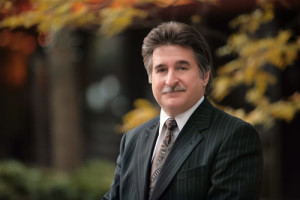Claims for services provided against an estate
Claims for services provided can be made against an estate since services provided to an elderly testator are recognized by the law for their value to the testator. As people in our society live longer, they also require more assistance in their old age from friends and family. This assistance can take the form of help with grocery shopping, payment of bills, driving to medical appointments, etc.
There are many circumstances when there are no relatives available or willing to help the elderly person. Premature death, isolation, or a breakdown in the relationship with relatives are examples when an elderly person may have no one available to provide assistance.

Claims for services provided against an estate require the assistance of an estate lawyer. Charles has over 40 years of experience.
If an elderly person has no relatives willing to help, they may, for example, enlist the help of a friend or a neighbor with a promise to leave the friend or neighbor a fair award in their will.
That person undertakes to help the elderly individual, expends time, and accrues costs in helping the testator. The services provided by the de facto “caregiver” assist the testator at the time when such assistance is needed most.
Other family members occasionally chose not to assist the testator. The person caring for the testator has a key role in the testator’s life.
Claims for services provided require legal advice
If the elderly testator fails to amend his or her will accordingly, the person helping them may later find out that he or she stands to get nothing. This one of the scenarios that can result in claims for services provided. Many claims by such disappointed helpers have made their way to Court. There have been cases where the elderly person even promises to leave their entire house or farm to the caregiver, only to neglect to arrange for this in the will.
The person who helped the elderly individual may be able to assert a claim against the estate. Consequently, you should seek legal advice if you believe you have claim for services provided. This is complex area of law that requires an experienced lawyer.
Unjust enrichment can be part of the claim
In cases like this, a quantum meruit claim or a claim for unjust enrichment may be appropriate. There must be sufficient evidence to support a claim. If certain factors are met, a person could make a claim based on an oral contract. The requirements for a claim for unjust enrichment are analyzed case by case, but in essence there must be an enrichment, a corresponding deprivation, and the absence of a legal reason for the enrichment.
Proof would be required that the elderly person was unjustly enriched by receiving the care of the person, without giving any tangible benefit to that person. Proving this in Court is a complex matter based on case law which has evolved over hundreds of years. Do not rely on advice from your friends. Do not rely on an online search. Hence, you should retain an estate litigation lawyer to help you with your case.
The person helping the testator must remember to keep track of all services provided and accrued expenses. Enlisting the help of a knowledgeable estate litigation lawyer is the first step for persons who may be asserting claims for services provided.
The information on this website is not legal advice. It is for informative purposes only. You can retain a lawyer only after scheduling a consultation. Finally, to book a consultation, call: 1-866-677-7746.
